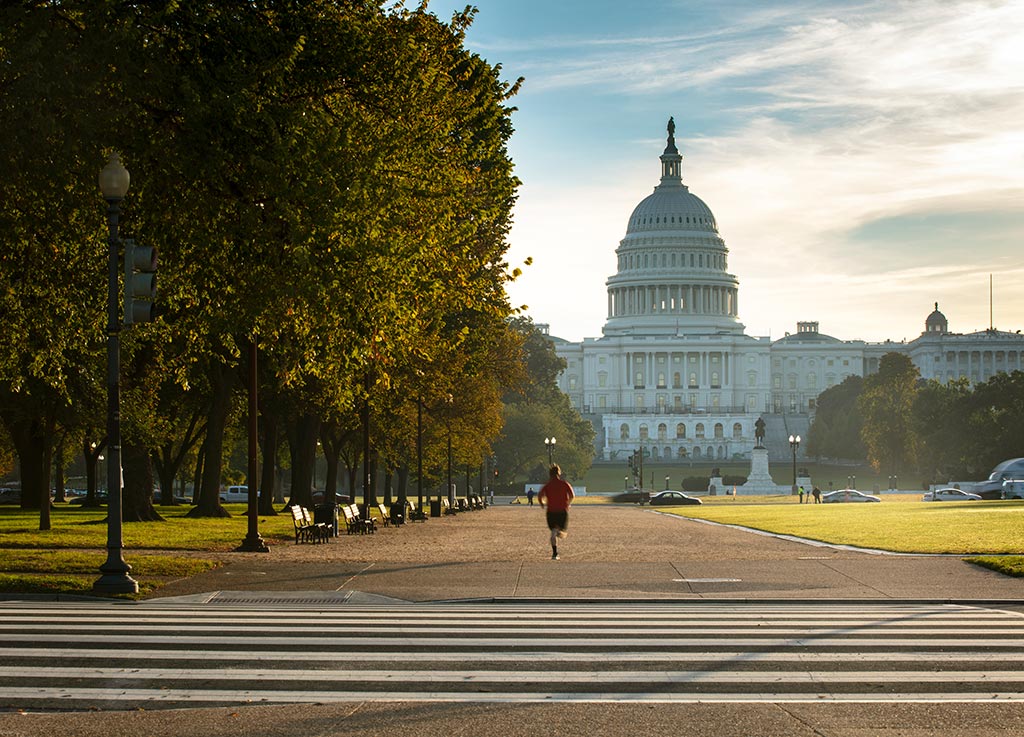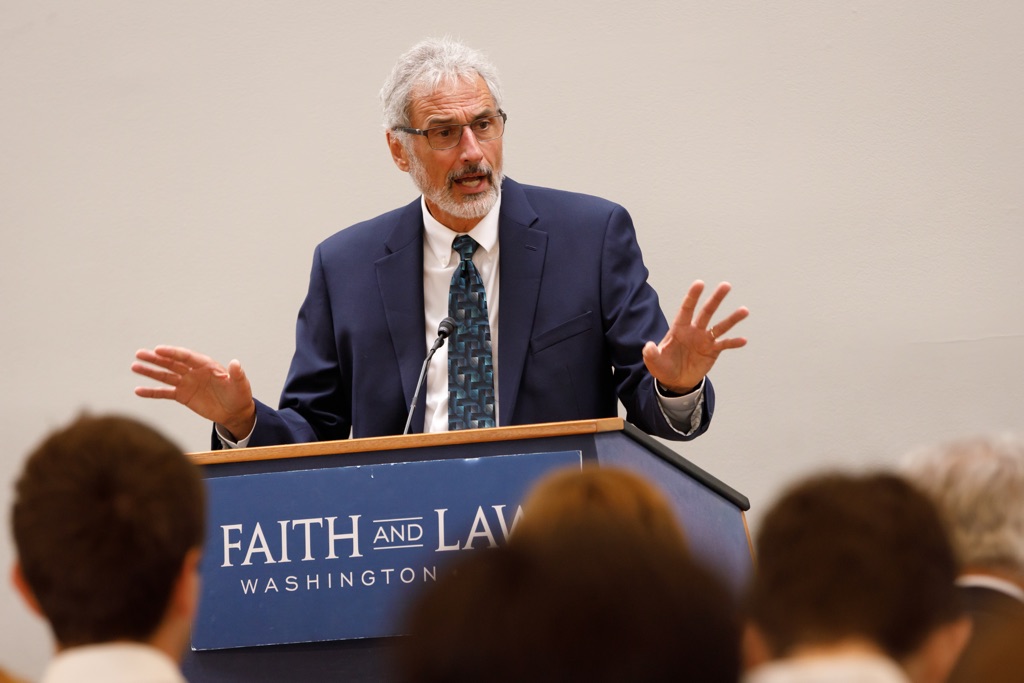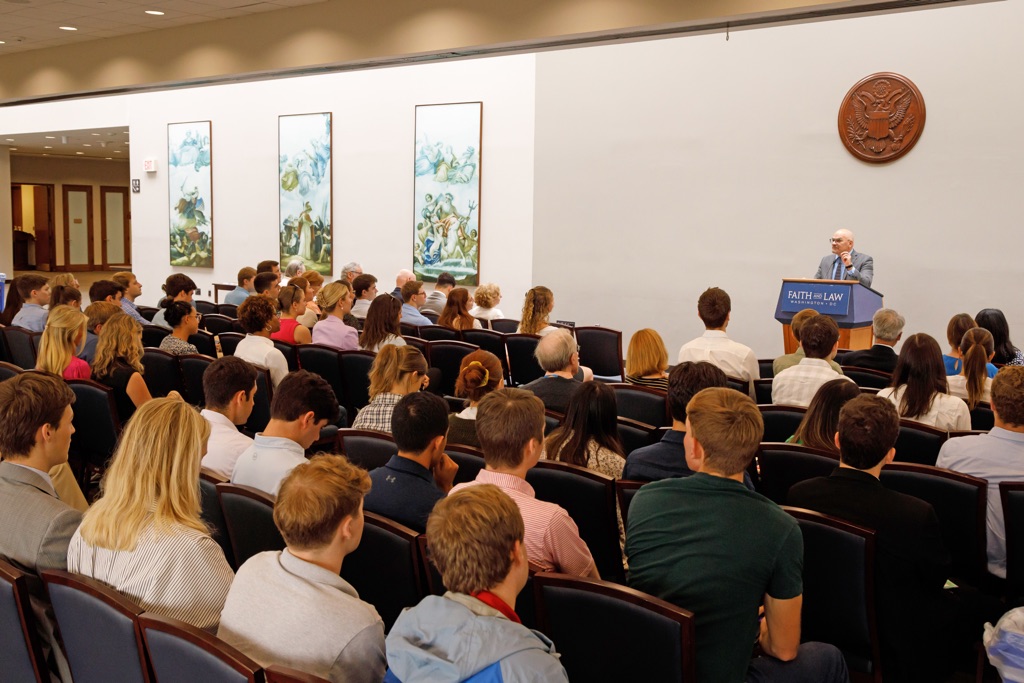Post-Chevron Implications for Religious Freedom
In partnership with The Becket Fund, Faith and Law hosted a distinguished panel of First Amendment lawyers to discuss the implications of the recent Supreme Court’s decision to overturn the longstanding doctrine of congressional delegation known as Chevron deference.
Hang on. Here’s the skinny:
In the 1984 Chevron decision, the Supreme Court ruled in favor of agency interpretation, deferring to an agency’s interpretation of ambiguity in a statute they are tasked with implementing. Forty years later, the Court’s decision in Loper Bright has reset the table.
Whereas an impetus for Chevron was to trim the political ambitions of the courts, the recent reversal belies a different concern: executive branch use of Chevron deference to usurp congressional intent.
“Even with clear text,” explained Rachel Morrison of the Ethics and Public Policy Center, an agency may try to “push the envelope as far as it can go in order to enforce its own political agenda, to usurp the role of Congress and to enforce its own ideas of what is politically desirable or socially desirable on the entire nation.”
Agency deference can run rough-shod over religious freedom protections. Case in point: the Pregnant Workers Fairness Act of 2022. According to Becket, PWFA provides reasonable accommodations to pregnancy, childbirth or related medical conditions unless that posed undue burdens on the employer. During the PWFA’s congressional debates, lawmakers emphasized over and over that the law provided “very simple” protections for pregnant women, and that it was hard to imagine “a more commonsense, less controversial” law.
But it wasn’t simple at all.
“When the EEOC proposed regs it proposed an expansive list of situations, even those that are not related to pregnancy – or are anti-pregnancy, such as abortion,” said Morrison.
Becket litigated a preliminary injunction and “got a very protective ruling” on the day the rule was going into effect, said Becket’s Laura Wolk Slavis. Had the regulation not been enjoined, accommodation for “abortion [would have been] forced on all employers, both religious and otherwise.” Religious employers would either have to compromise their beliefs or be non-compliant with the rule.
Litigating First Amendment rights poses significant burdens on a religious organization. Far better to get things right up front. “Be specific when you are drafting legislation,” advised Paul J. Ray of the Heritage Foundation. “If you want to pass a statute and you don’t know a lot about it…ask the agency to explain things to you. Think of them as resources you can tap now, so you can give adequate specificity to direct them in the future.”
Congressional staff responded positively to the charge. “If I have learned anything from our conversation today,” concluded Becket’s Amy Vitale, “it’s the complexity within which religious liberty issues interact with what you are doing here in public service, which is an exciting place for you all to be, and the ways in which that can pop up anywhere. Religious liberty does not operate in a vacuum.”
Thank you, Becket, for hosting this important and practical discussion of the opportunities to enhance religious liberty protections in a post-Chevron world.
Faith and Law is a non-profit ministry started by policy makers and for policy makers.







